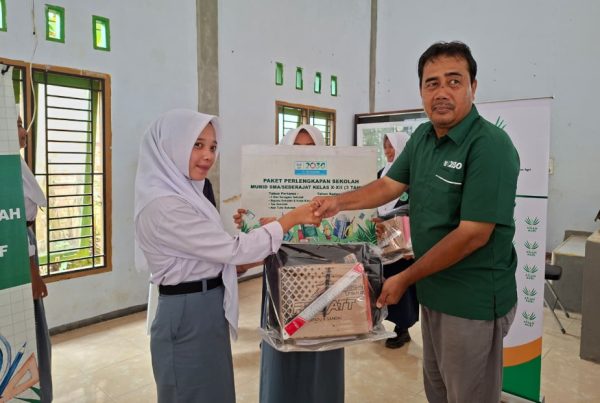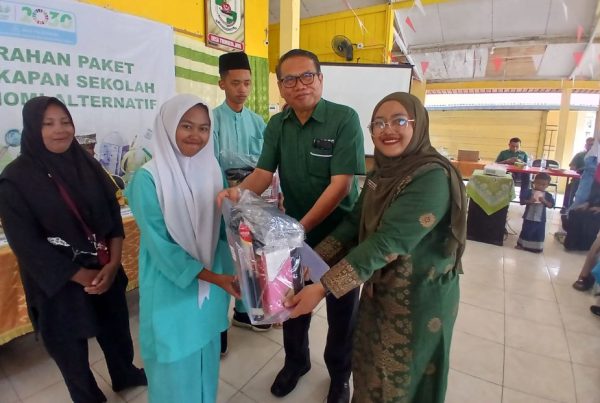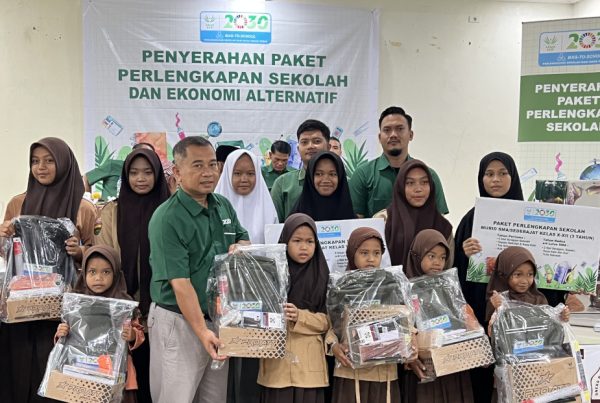Jakarta, 22 February 2018 – Asian Agri recently explained its efforts to increase national palm oil production in an optimal and sustainable way during a national seminar held in Jakarta, Indonesia.
The seminar, which took place on February 22, saw the participation of various stakeholders within the national palm oil industry.
The demand for processed products made with palm oil – both within and beyond Indonesia – was evident in 2017, with palm oil exports experiencing a 23 per cent increase, from 25.11 million tons in 2016 compared to 31.07 million tons last year.
However, under the Indonesian government’s restriction against the development of new land for the expansion of palm oil plantations, national palm oil industry players are increasingly being encouraged to raise productivity of their plantations using existing land.
At the seminar, Abdul Aziz, Head of the Agronomy Department at the Asian Agri Research and Development Centre in Bahilang, North Sumatra, shared technical knowledge on maximizing palm oil production potential through the use of proper fertilization techniques.
“The quality and consistency of crop fertilization is a crucial factor in increasing palm oil production, as the fertilization process provides the nutrients which are required by the palm plants,” Aziz explained.
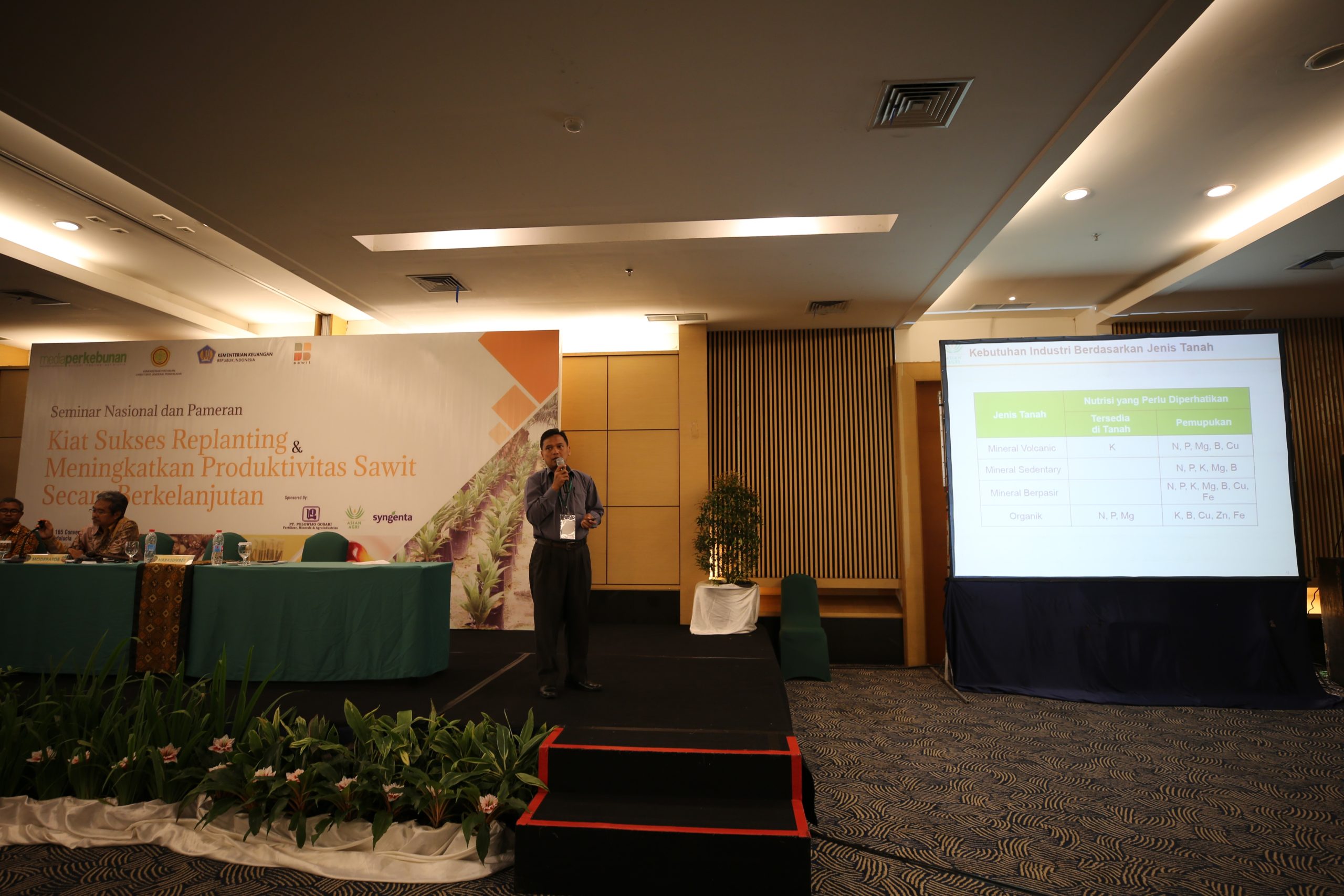
Sufficient nutrition promotes healthy plant growth and the plants’ resistance to pests and diseases, and also produces Fresh Fruit Bunches (FFB) with high oil content.
Aziz emphasized that optimal productivity of palm oil plants is also strongly influenced by the use of appropriate palm seeds.
“Currently, there are many palm oil seeds with many benefits sold in the market which can be obtained by farmers and companies.
“At Asian Agri, we produce superior Topaz seeds which support palm oil plantation productivity. We continue to remind farmers to be careful when purchasing palm oil seedlings. Ensure that they are from official sources to be assured of authenticity and quality,” Aziz said.
Topaz palm oil seedlings are capable of producing above average harvests which have been experienced by partners of Asian Agri, he said.
“Topaz palm oil seeds produce large numbers of FFB and amounts of crude palm oil, giving farmers and companies the benefit of achieving higher yields from the same amount of land,” Aziz said.
Topaz seeds are additionally well adapted to marginal land and have slow vertical growth.
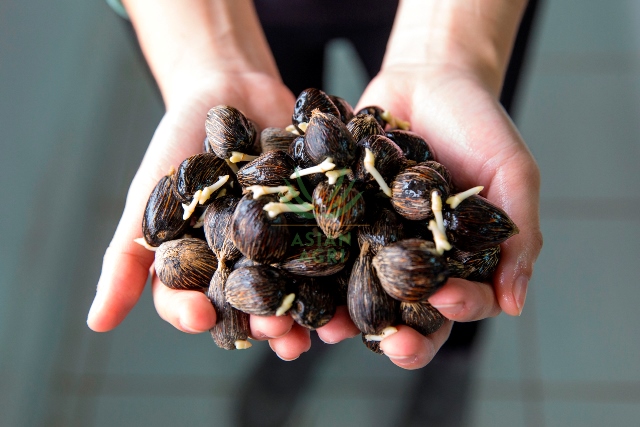
“At the micro level, the utilization of Topaz seeds can ensure higher production and profit to the palm oil planters – the farmers. At the macro level, we hope that our Topaz seeds will be able to help support an increase in national palm oil production, and to strengthen Indonesia’s position as the largest palm oil producer in the world,” Aziz said.
Asian Agri’s Topaz seeds – which are ISO 9001: 2008 and ISO 14001: 2004 standard certified – have been available for sale since 2004.
Last year, the Topaz seeds gained Indonesian President Joko Widodo’s attention during the Trade Expo Indonesia 2017 event.
***
About Asian Agri:
Asian Agri is one of the leading private companies in Indonesia producing crude palm oil (CPO) since 1979 and employs around 25,000 people today. Since 1987, Asian Agri has been a pioneer of the Indonesian government’s Trans-National Government Migration (PIR-Trans) program. Today, the company manages 100,000 Ha of land and partners 29,000 smallholder families in Riau and Jambi who operate 60,000 Ha of palm oil plantation.
Asian Agri’s success in becoming one of the leading CPO companies has been acknowledged internationally with the ISO 14001 certification for all of its operations. Its Learning Institute in Pelalawan, Riau, as well as its nursery research center in Kampar, Riau are ISO 9001 certified. In addition, Asian Agri’s R&D Center in Tebing Tinggi has also obtained certification by the International Plant-Analytical Exchange at the WEPAL lab at Wageningen University in The Netherlands, for its high standards.
More than 86% of both owned plantations in North Sumatra, Riau & Jambi provinces & scheme smallholder plantations in Riau & Jambi provinces have been RSPO certified.
All plantations have also been ISCC-certified (International Sustainability & Carbon Certification), including plantation owned by smallholders. Palm oil mills and plantation in Buatan, Ukui, Soga, Tungkul Ulu, and Muara Bulian have been ISPO (Indonesian Sustainable Palm Oil) certified.
For further information, please contact:
| Dinna Permana Setyani |
| Corporate Communication Manager |
| E-mail: DinnaPermana@www.asianagri.com |
| DID: (021) 230 1119 |


